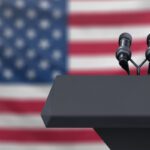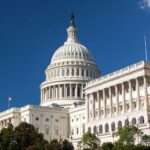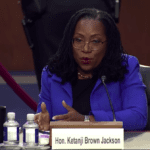Public relations agencies have many tools to prepare a client for an interview. But perhaps the most important one is not in any text book or training manual, that is, “common sense.”
Media Training


Communications Lessons from the State of the Union
February 13th, 2023 by Brett BruenMany American companies could learn a few things from how President Joe Biden responded during his State of the Union.

Preparing for Possible Negative Super Bowl & Olympics Media Coverage is PR’s Job
January 31st, 2023 by Arthur SolomonPreparation for negative media coverage always is important. For tentpole events like the Super Bowl and the Olympics, it’s table stakes. Here are tips for preparing companies.

Why Leaders Need Communication Training and How to Do It
December 15th, 2022 by Abigail GreenheckLast-minute prep sessions won’t afford leaders solid communication skills. Instead, consider a proper training regime for leadership that include mock interviews, pivoting exercises and tips for change-management communication.

How the U.S. Men’s Soccer Captain, 23, Delivered a Pitch-Perfect Response
November 29th, 2022 by Seth ArensteinWas the US Men’s Soccer captain media-trained? We’re not sure, but his cool-headed responses to difficult questions were excellent.

[VIDEO] PRNEWS Live Compares PR to Working at a Haunted House
October 20th, 2022 by Nicole SchumanPRNEWS welcomed Stacey Federoff, senior account executive at Red Havas and part-time haunted house employee. We discussed similarities between working as a haunt actor and a communicator.

Patagonia Owner’s Giveaway Can Make Climate Change a Local Issue
September 20th, 2022 by John CaseyA key component of the Patagonia giveaway is that the brand can make climate a local and even more relatable issue, our author, a retail and climate veteran, argues.

PR Lessons from the January 6 Committee Hearings
June 29th, 2022 by Arthur SolomonEven before yesterday’s (June 28) riveting testimony from Cassidy Hutchinson, there were several important lessons about creating a PR media campaign and pitching that emerged from the January 6 Select Committee hearings. 1. The most… Continued

How PR Pros, Marketers Can Combat Disinformation
March 31st, 2022 by Dr. Tina McCorkindale and Anetra HenryThere’s little doubt about how much trouble disinformation causes. Moreover, the public holds PR and marketing, among others, partly responsible.

Judge Ketanji Brown Jackson’s Confirmation: A Case Study for Media Trainers
March 28th, 2022 by Wendy RoundtreeJudge Ketanji Brown Jackson’s confirmation hearings offered how-to lessons in remaining composed in the face of difficult interview questions.


